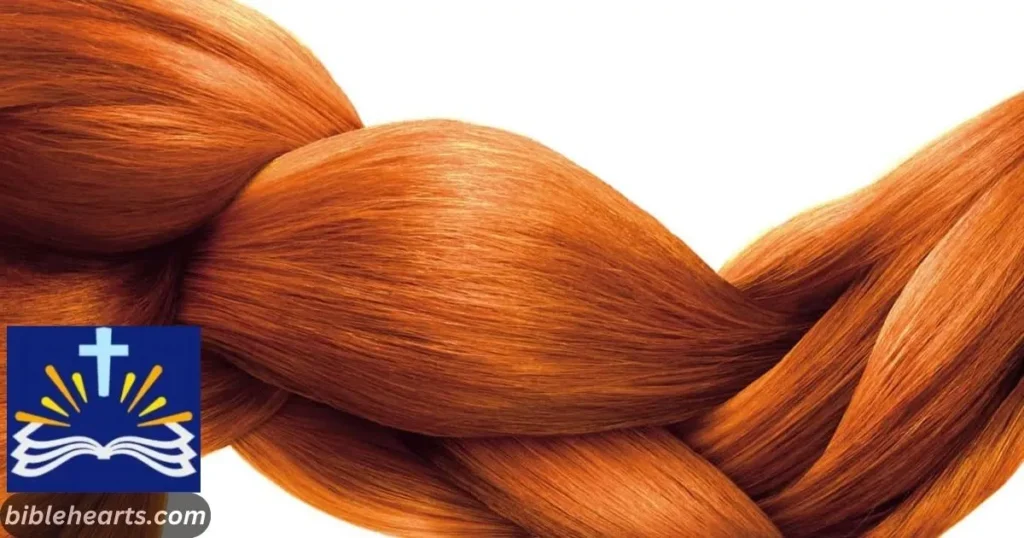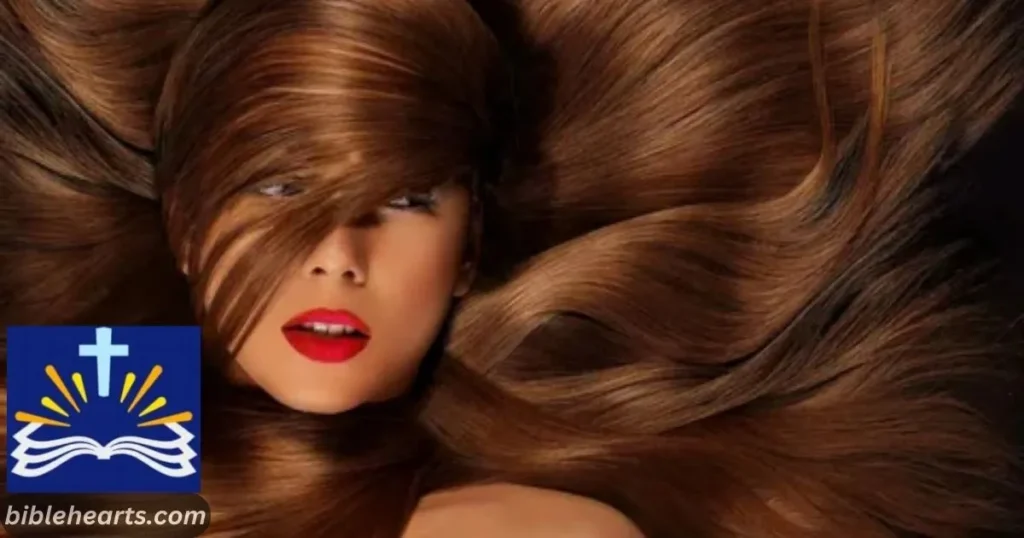“Uncover the wisdom of ancient scriptures on how personal appearance, including hair growth, holds significance in spiritual and everyday life.”
When we think about the Bible, we often focus on its teachings about faith, love, and morality. However, it also offers guidance on more practical aspects of life, including personal appearance. Among these practical considerations, hair growth is an intriguing topic. Hair, which plays a significant role in our daily lives and self-image, is mentioned in various contexts throughout the Bible.
Hair, in biblical times, was not just a personal attribute but also held cultural and spiritual significance. For example, the length and condition of one’s hair could symbolize one’s commitment to faith, purity, or even strength. Exploring what the Bible says about hair can offer valuable insights into how personal appearance intersects with spiritual life and self-expression.
This post delves into the Bible verses that address hair growth and personal appearance. By understanding these verses, readers can gain a deeper appreciation for how personal appearance is woven into the tapestry of biblical teachings.
1. Hair as a Symbol of Strength

- Judges 16:17: “So he told her everything. ‘No razor has ever been used on my head,’ he said, ‘because I have been a Nazarite dedicated to God from my mother’s womb. If my head were shaved, my strength would leave me, and I would become as weak as any other man.’”
- 1 Samuel 14:45: “But the people said to Saul, ‘Should Jonathan die—he who has brought about this great deliverance in Israel? Never! As surely as the Lord lives, not a hair on his head will fall to the ground; for he did this today with God’s help.’”
- 2 Samuel 14:26: “At the end of every year, he would cut his hair because it became too heavy for him; he would cut it from his head. He weighed it, and its weight was two hundred shekels by the royal standard.”
- Proverbs 16:31: “Gray hair is a crown of splendor; it is attained by a righteous life.”
- 1 Corinthians 11:14: “Does not the very nature of things teach you that if a man has long hair, it is a disgrace to him.”
- Revelation 1:14: “The hair on his head was white like wool, as white as snow, and his eyes were like blazing fire.”
Real-Life Example
Samson, known for his legendary strength, had his power linked directly to his hair. When his hair was cut, he lost his strength, demonstrating how hair can symbolize power and vitality.
2. Hair as a Sign of Dedication
Numbers 6:5: “During the entire period of the Nazarite vow, no razor may be used on the person’s head. They must be holy until the period of their dedication to the Lord is over; they must let their hair grow long.”
- Acts 21:24: “Take these men, join in their purification rites and pay their expenses, so that they can have their heads shaved. Then everyone will know there is no truth in these reports about you, but that you yourself are living in obedience to the law.”
- 1 Corinthians 11:15: “But that if a woman has long hair, it is her glory? For long hair is given to her as a covering.”
- Leviticus 21:5: “Priests must not shave their heads or shave off the edges of their beards or cut their bodies.”
- Judges 13:5: “You will become pregnant and have a son whose head is never to be touched by a razor because the boy is to be a Nazarite, dedicated to God from the womb.”
- 2 Timothy 4:8: “Now there is in store for me the crown of righteousness, which the Lord, the righteous Judge, will award to me on that day—and not only to me, but also to all who have longed for his appearing.”
Real-Life Example
Nazarites were individuals who took a special vow to dedicate themselves to God. Their commitment was marked by letting their hair grow long, signifying their devotion and separation from worldly concerns.
3. Hair and Humility
- 1 Peter 3:3-4: “Your beauty should not come from outward adornment, such as elaborate hairstyles and the wearing of gold jewelry or fine clothes. Rather, it should be that of your inner self, the unfading beauty of a gentle and quiet spirit, which is of great worth in God’s sight.”
- Isaiah 3:24: “Instead of fragrance there will be a stench; instead of a sash, a rope; instead of well-dressed hair, baldness; instead of fine clothing, sackcloth; instead of beauty, branding.”
- Ezekiel 44:20: “They must not shave their heads or let their hair grow long, but they are to keep the hair of their heads trimmed.”
- Matthew 5:36: “And do not swear by your head, for you cannot make even one hair white or black.”
- Luke 12:7: “Indeed, the very hairs of your head are all numbered. Don’t be afraid; you are worth more than many sparrows.”
- 1 Corinthians 11:6: “If a woman does not cover her head, she should have her hair cut off; and if it is a disgrace for a woman to have her hair cut off or her head shaved, then she should cover her head.”
Real-Life Example
Biblical figures like John the Baptist lived ascetic lives, which often included simple hairstyles. Their appearance reflected their commitment to humility and a focus on spiritual rather than material concerns.
Bible Verses About Narcissism
4. Hair and Cultural Identity
- Song of Solomon 4:1: “How delightful is your love, my sister, my bride! How much more pleasing is your love than wine, and the fragrance of your perfume more than any spice!”
- Jeremiah 7:29: “Cut off your hair and throw it away; take up a lament on the barren heights, for the Lord has rejected and abandoned this generation that is under his wrath.”
- Revelation 9:8: “They had hair like women’s hair, and their teeth were like lions’ teeth.”
- 2 Samuel 14:26: “At the end of every year, he would cut his hair because it became too heavy for him; he would cut it from his head. He weighed it, and its weight was two hundred shekels by the royal standard.”
- Exodus 28:36: “Make a plate of pure gold and engrave on it as on a seal: HOLY TO THE LORD.”
- Leviticus 19:27: “Do not cut the hair at the sides of your head or clip off the edges of your beard.”
Real-Life Example
Traditional cultures often have specific hairstyles that denote cultural or spiritual identity. For instance, Native American crew use distinct hairstyles to signify crew membership and spiritual beliefs.
5. Hair and Health

- Proverbs 3:8: “This will bring health to your body and nourishment to your bones.”
- 1 Timothy 5:10: “And is well reported of for good works; if she has brought up children, if she has lodged strangers, if she has washed the saints’ feet, if she has relieved the afflicted, if she has diligently followed every good work.”
- Ecclesiastes 12:5: “When men are afraid of heights and of dangers in the streets; when the almond tree blossoms and the grasshopper drags itself along, and desire no longer is stirred. Then people go to their eternal home and mourners go about the streets.”
- Proverbs 16:31: “Gray hair is a crown of splendor; it is attained by a righteous life.”
- Song of Solomon 6:5: “Turn your eyes from me; they overwhelm me. Your hair is like a flock of goats descending from Gilead.”
- 1 Kings 1:1: “When King David was old and well advanced in years, he could not keep warm.”
Real-Life Example
Healthy hair can be a sign of overall well-being. For instance, a balanced diet and proper care can contribute to vibrant hair, reflecting good health and self-care.
6. Hair and Personal Choices
- 2 Kings 2:12: “Elisha saw this and cried out, ‘My father! My father! The chariots and horsemen of Israel!’ And Elisha saw him no more. Then he took hold of his own clothes and tore them apart.”
- Ezekiel 44:20: “They must not shave their heads or let their hair grow long, but they are to keep the hair of their heads trimmed.”
- 1 Corinthians 11:14: “Does not the very nature of things teach you that if a man has long hair, it is a disgrace to him.”
- Leviticus 19:27: “Do not cut the hair at the sides of your head or clip off the edges of your beard.”
- Isaiah 7:20: “In that day the Lord will use a razor hired from beyond the Euphrates River—the king of Assyria—to shave your head and the hair of your legs, and to take off your beards as well.”
- Proverbs 27:6: “Wounds from a friend can be trusted, but an enemy multiplies kisses.”
Real-Life Example
People often use their hairstyle to express their personal identity or beliefs. For example, some individuals choose to keep their hair long or short based on personal or spiritual reasons.
7. Hair as a Reflection of Divine Order
- Genesis 1:26: “Then God said, ‘Let us make humanity in our image, in our likeness, so that they may rule over the fish in the sea and the birds in the sky, over the livestock and all the wild animals, and over all the creatures that move along the ground.’”
- Psalms 139:14: “I praise you because I am fearfully and wonderfully made; your works are wonderful, I know that full well.”
- Matthew 10:30: “And even the very hairs of your head are all numbered.”
- Luke 21:18: “But not a hair of your head will perish.”
- John 18:26: “One of the high priest’s servants, a relative of the man whose ear Peter had cut off, challenged him, ‘Didn’t I see you with him in the garden?’”
- James 1:12: “Blessed is the one who perseveres under trial because, having stood the test, that person will receive the crown of life that the Lord has promised to those who love him.”
Real-Life Example
Every strand of hair is considered part of God’s creation, symbolizing the intricate and divine nature of human life. Believers may see their hair as part of a larger spiritual framework that underscores their connection to God.
How does the Bible relate to modern views on hair care and appearance?
The Bible offers various perspectives on hair, reflecting cultural and spiritual values of its time. Today, while some practices from the Bible may not be directly applicable, the underlying principles—such as respect for oneself and consideration of spiritual values—can still be relevant.
Modern views on hair care can incorporate these biblical principles by valuing both personal expression and spiritual well-being.
Answers to Key Questions
1. Does the Bible prescribe specific hairstyles for Christians
The Bible does not prescribe specific hairstyles for Christians. It provides principles related to modesty, humility, and respect, leaving personal choices about hairstyles to individual discretion.
2. What does the Bible say about hair in terms of gender roles?
The Bible mentions hair in the context of gender roles, such as in 1 Corinthians 11, where it discusses long hair for women and short hair for men as a cultural norm in Corinthian society.
3. How does hair symbolize strength in the Bible?
Hair symbolizes strength in the story of Samson, where his strength is linked to his unshorn hair, reflecting his Nazarite vow and divine empowerment.
4. Can hair care practices today reflect biblical principles?
Yes, hair care practices today can reflect biblical principles by emphasizing health, modesty, and self-respect while respecting personal expression and spiritual values.
5. Are there modern examples of biblical hair traditions?
Modern examples include religious communities that maintain specific hair practices, such as the Sikh tradition of keeping uncut hair as a symbol of faith and respect for God’s creation.
Conclusion
The Bible provides a rich tapestry of references related to hair growth and personal appearance, intertwining spiritual significance with everyday life. From symbols of strength and dedication to reflections on humility and cultural identity, the biblical perspective on hair offers valuable insights into how personal appearance intersects with spirituality.
By understanding these verses, we can appreciate how ancient wisdom continues to influence our views on appearance and self-care today.

Hi! I’m Zaide Smith, the admin of Bibblehearts.com, where I strive to curate engaging content that inspires and connects our readers. With a passion for storytelling and community building, I’m dedicated to fostering a welcoming space for all.










